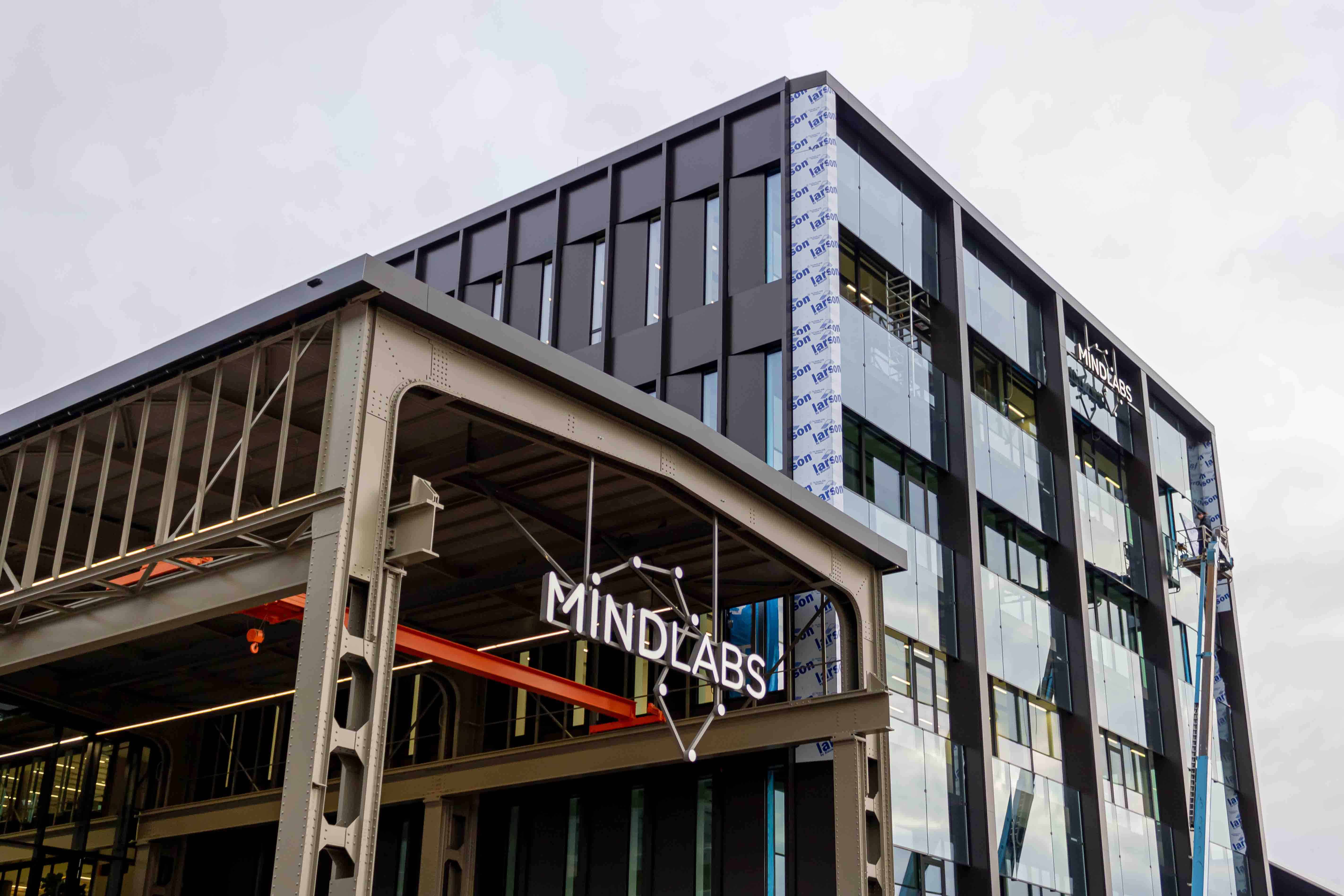
According to the Israeli historian-futurologist Yuval Noah Harari, humans are becoming more and more robotic and robots are increasingly gaining human traits. Over the past few months, Innovation Origins has been looking around the Dutch robotics nursery at Eindhoven University of Technology (TU/e) and wrote about it in this series. Today, the last installment.
A 3D printer that builds your home exactly the way you want it. All parts are movable so that the house can literally be adjusted to your liking. An extra-large living room or balcony, that can be arranged right away. A robot brings you a cup of coffee even before you realize that you feel like one. And if you need care at a later stage of your life, the robot will always be by your side. Are you already able to envisage this in your future?
It is obvious, robots are going to change our lives. Nowadays, you can develop a robot for every application in every field. For this series, scientists spent hours talking about the technology, potential fields of application, and the ethical aspects of (self-steering) robots. All these robots and related research have one thing in common: Robots have to respond to the behavior of people and, moreover, behave more and more like human beings themselves.
Artificial intelligence
The technology that is behind it all? Artificial intelligence. This is the basis for all robots, the brain, you might say. A great intangible thing that will overtake humanity if we are not careful enough. Because, just how human can robots become? How clever will they become? And how will they learn to deal with emotions?
There is so much that can be done and yet at the same time, not so much either. The soccer robots from Tech United are getting better every year. But they still have a long way to go if they want to beat the human world champions. Robots do not have any insight that enables them to predict what will happen in a few seconds. Something that is extremely important in soccer. This is difficult to pinpoint in an algorithm.
Predictive capability is also important in the development of autonomous cars. As humans, we often see, for example, when a cyclist is going to turn even before they signal that with a hand gesture. But what do we base that on? It is difficult to establish rules for this that an algorithm can use. The robots have to learn from a wealth of data about the choices people make in these kinds of situations. That takes time. For now, therefore, AI cannot match a human driver by a long shot.
Faster and better
But there are also tasks that robots can perform much better than humans. Order picking, for example. But even this type of robot is not yet ready for the world of humans. A robot cannot feel the difference between materials. This means that it does not know how to handle certain materials. When people pack a box of items, they know exactly which materials they can press down a bit more so that they can close the box. A robot does not have that insight. Such skills are needed to really be able to function as, for example, a fully-fledged employee in a factory.
And we have not even mentioned service robots in healthcare yet. A robot can perform tasks such as lifting someone out of bed, bringing food, or helping them to the bathroom, although interacting with people is still very complicated. How hard do you have to grab someone when you are helping them to go to the toilet? A person needs to feel safe and of course, you should not drop them either, but grasping them too hard is painful. The robot itself has no skin, has no idea what it feels like, and thus has difficulty assessing this kind of thing. Moreover, this varies from person to person. There are several service robots under development at the moment. It is often the case that these can only perform a few specific tasks. As such, the full range of tasks of a nurse is (still) far too complex.
Social behavior
Robots need to understand their environment in order to truly become part of society. They have to recognize situations and be able to respond to them accordingly. Scientists are attempting to put the social behavior of human beings into a robot. But this is tricky. After all, robots work on the basis of facts and connections. But human feelings cannot be grasped that way. How close do you stand to someone when you are having a conversation with them? How do you know that someone has heard you when you say something? And how do you identify feelings someone else might have? All things that we use feelings and emotions in order to work out. Which is quite hard to explain to a computer.
An algorithm can learn from mistakes. But then it needs to know what is right and what is wrong. Except that so many things in society are not so black and white. Every situation is slightly different, which is what makes it all so complicated. You could compare it to a child’s learning process. From the first weeks of their lives, children learn more and more about the world around them. They discover basic principles such as gravity by doing things. Social skills also develop over time. Robots are undergoing that same kind of development too. The university is not just a nursery, it is also a preschool for robots.
The fact that robots are still in preschool feels reassuring for now: It means that people are still not replaceable. We are creative, have empathy and emotions. Robots do not have any of those qualities. Not yet, at least. Because, how sensitive could a robot actually become? What if they develop emotions as well? Will we be able to distinguish people from robots in the future? These are questions that remain unanswered. The future will teach us.
The tip of the iceberg
This is just the tip of the iceberg. There is still a tremendous treasure trove of technological developments, new applications, and special innovations lying beneath the surface. We will discover them in time. In the interim, scientists are continually developing existing robots. What if the robots start puberty soon? The researchers are preparing themselves for real issues to do with their upbringing. After all, humankind is in charge of robots and their development. At least for the time being. Will robots ever take over the world? Maybe in the future, but right now, humans and robots are empowering each other.
Read all articles in this series here.







